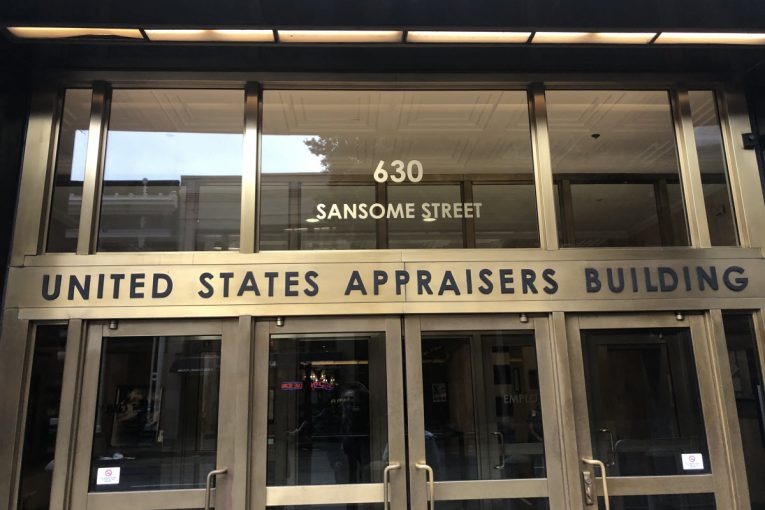

Last week the San Francisco Public Defender’s Office put out a press release condemning a Trump Administration decision announcing that the San Francisco Immigration Courts would stop hearing cases of detainees at the Mesa Verde Detention Facility, which houses numerous public defender clients.
In the release, they point out that the decision by the Department of Justice will make it more difficult for San Francisco and Alameda County public defenders to appear in immigration court on behalf of immigrant detainees because those cases will now be heard in Southern California.
Until this week, Bay Area immigrants held at the Mesa Verde Detention Center had their cases heard in San Francisco. Now those cases will be heard in a newly constructed courtroom in Van Nuys, Calif. — nearly 400 miles away.
On Tuesday, the Vanguard was in immigration court before Judge Julie Nelson. She heard about 25 cases, most of which had indigent defendants who, without the benefit of the vigorous representation by the San Francisco Public Defender’s Office, would by at the mercy of the court and forced to represent themselves.
In one of these cases, Public Defender Emilou Maclean was representing a woman who was seeking asylum. The woman explained that she feared going back to Mexico because she believed her safety would be in jeopardy. At the same time, she faced charges of coming to this country with no valid or legal documents.
Ms. Maclean addressed the matter to the court, noting that those individuals detained at Mesa Verde would be moved to Van Nuys near Los Angeles. However, the charge of the San Francisco Public Defender’s office is that they can only represent their clients in this court.
While these individuals have a right to counsel, without the public defender’s office representing them, she argued, they would effectively not have representation.
Judge Nelson said that she was largely in the dark as to these administrative decisions. She did not know that new cases would indeed be filed in Van Nuys.
For existing cases, of course, the Public Defender’s Office would have recourse. They would be able to oppose any move to change venue within ten days of the government’s action. In her view,  that would give them plenty of reason to respond.
that would give them plenty of reason to respond.
In their release, they noted, in recent years, many public defender offices, including Alameda and San Francisco, began providing deportation defense services to indigent immigrants. Despite that, immigration courts made this decision without asking for public defender input and without consulting any of the communities impacted by moving these cases out of the Bay Area.
On January 14, 2019, the Alameda and San Francisco County Public Defenders requested the San Francisco Immigration Court meet with them to discuss moving cases. So far, federal authorities have not responded. The federal DOJ runs all immigration courts.
“Our program has provided vital legal services to hundreds of detainees who were unable to afford a lawyer, and this move will deprive immigrants of legal services they need,” said Francisco Ugarte, head of the immigration unit at the San Francisco Public Defender. “Given our considerable role and the dramatic impact immigration proceedings have on immigrant communities throughout the state, the immigration courts have an obligation to consider our input, involve us in court planning, and meet with vital stakeholders.”
The Department of Justice has not provided a rationale for its decision. There does not appear to be a demonstrable change in the number of immigrant detainees in Northern California. The administration has also constructed a new immigration court in Sacramento, Calif. These new courts were built on the heels of successful efforts in the Bay Area to significantly expand the capacity for removal defense representation before San Francisco’s detained immigration courts.
“Moving cases away from legal resources is a step away from justice rather than a step towards it. The role of public defender offices in protecting due process and access to justice cannot be overstated,” said Raha Jorjani, head of the Alameda County Public Defender’s immigration unit. “We are indigent legal defense experts serving some of the most marginalized members of our communities. Rather than seeking input and getting the benefit of that expertise, the Court chose to lock us out of the process. And we will all lose as a result.”
On Tuesday, we got a view of about 25 or so of such cases. Some of them involve people who have lived in this country for 30 years. They have family and deep roots.
In many cases, Judge Nelson patiently explained to the defendants that they have options by which to fight for their ability to remain in this country. In one case, the judge explained that a man’s family could argue that, as he is the major provider, they would be materially harmed by his deportation.
The man ultimately decided that the process was long and complicated and decided simply to return to his country of origin.
However, in another case, the judge exited the courtroom and allowed Ms. Maclean to converse with her client in Spanish as they considered the possibilities of being able to contest a removal order.
Without the vigorous representation of attorneys like Ms. Maclean, many of these individuals would be forced to fight alone – without legal advice or in many cases without the means to put together a case that could be made for them to remain in this country.
—David M. Greenwald reporting

